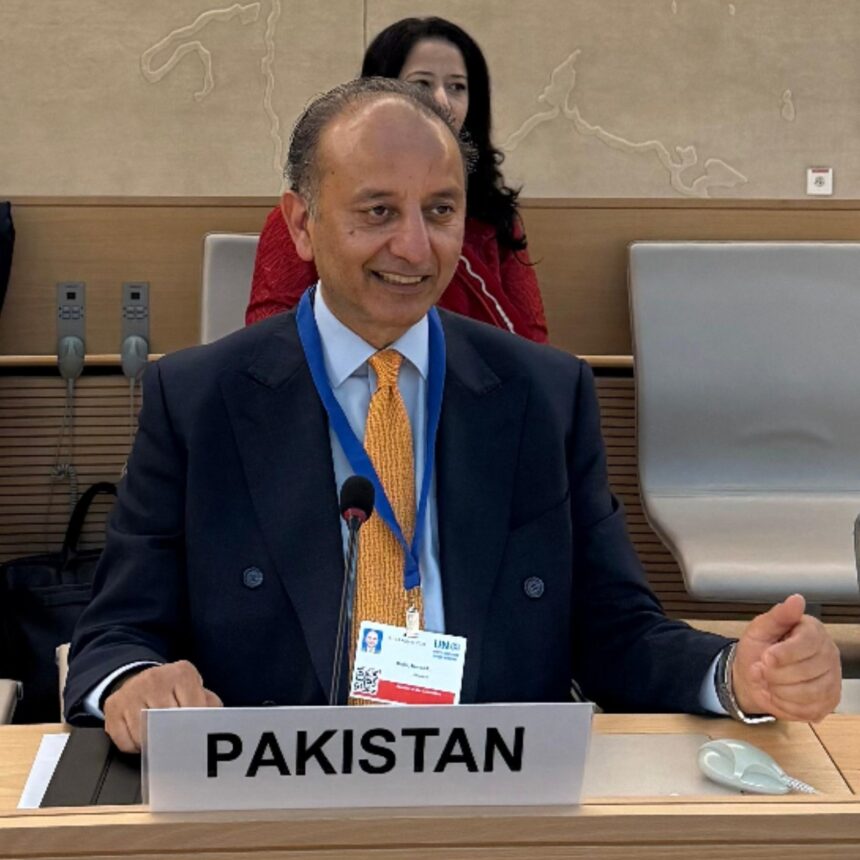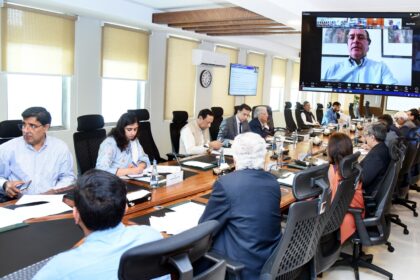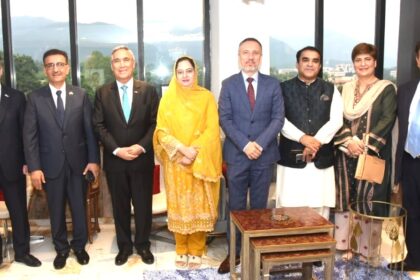At international negotiations in Geneva, Pakistan has urged for fair and equitable global action to address the plastic pollution crisis, highlighting the disproportionate burden borne by developing nations despite minimal consumption. Federal Minister for Climate Change and Environmental Coordination Dr. Musadik Malik advocated a dual-pronged solution focused on justice and accountability, proposing the creation of a Plastic Fund and a Plastics Credit Market under the framework of a Global Plastic Treaty.
Dr. Malik highlighted the stark disparity in plastic usage between developed and developing countries. He noted that while countries like those in Western Europe consume up to 150 kilograms of plastic per person each year, Pakistan’s per capita consumption is only 7 kilograms. Similar trends are seen in other developing countries, such as India, Bangladesh, Nigeria, Ethiopia, and Kenya, where average annual consumption ranges from 5 to 8 kilograms. Despite their low usage, these nations are often overwhelmed with imported plastic waste from wealthier countries, which lacks adequate local recycling infrastructure and frequently ends up polluting landfills, rivers, and communities.
Addressing ministers during a special dialogue on circular economy investment opportunities, Dr. Malik criticized the global system that allows high-income countries to export their plastic waste to the Global South under the guise of recycling. This practice, he argued, exposes local populations to health risks and environmental degradation, while contributing little to the underlying problem of overconsumption in richer nations.
To combat this, Dr. Malik presented a two-point action plan. The first is an Extended Consumer Responsibility framework, which would hold countries accountable based on their actual plastic consumption rather than just disposal methods. Under this proposal, nations with high per capita consumption would contribute financially to a global Plastic Fund, which would then support recycling infrastructure and technology upgrades in countries most affected by imported plastic waste.
The second component is the establishment of a Global Plastics Credit Market, modeled on existing carbon credit systems. This market would allow high-consuming nations to purchase credits from developing countries that demonstrate progress in recycling, waste collection, and pollution prevention. The proceeds would fund modern recycling plants, strengthen waste management systems, and help integrate informal waste workers into safer, formal employment, thus addressing both environmental and social challenges.
Dr. Malik emphasized that plastic pollution is not just an environmental issue but also one of justice, fairness, and national sovereignty. He asserted that no nation should become a dumping ground for the world’s waste, and called for principles of fairness and transparency to be integral to any global plastic agreement. Pakistan, he concluded, is ready to lead efforts for a future where the environment is protected and all countries share responsibility in solving the plastic crisis.











